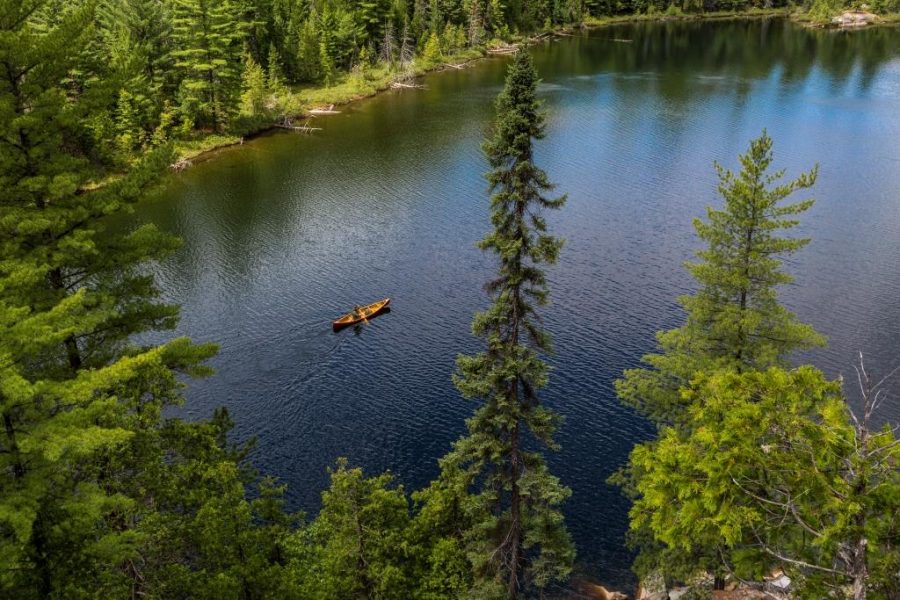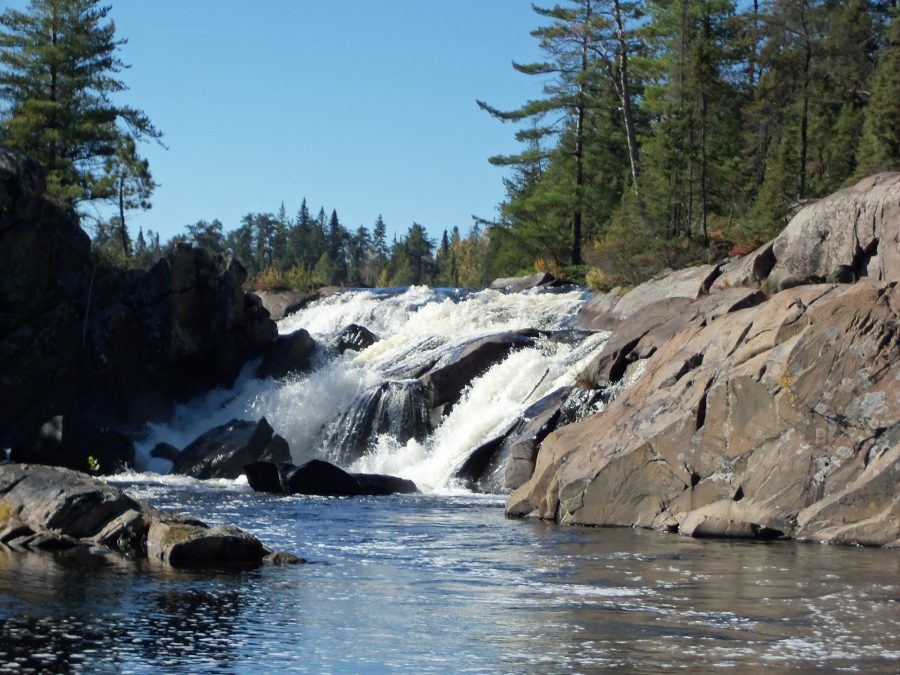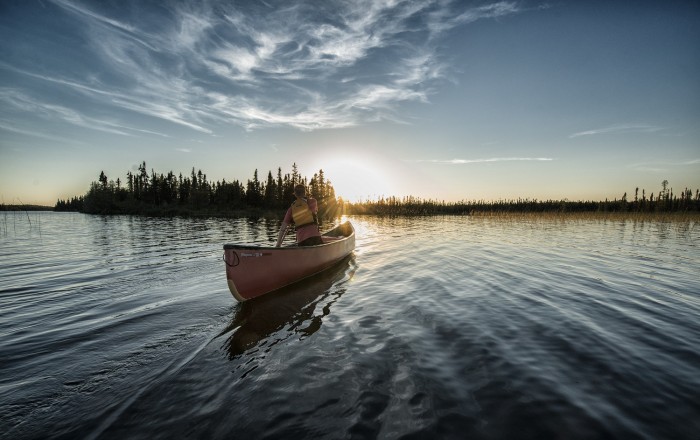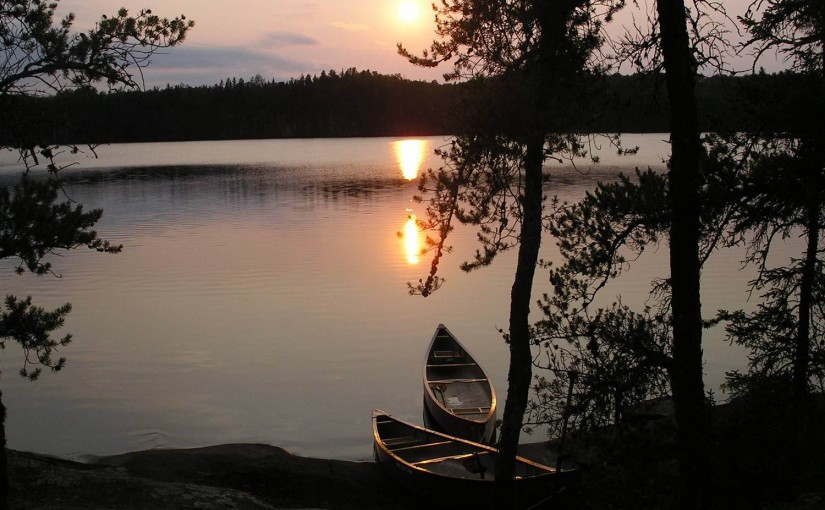Choosing a park that offers the opportunities you are searching for can be the hardest part of the planning process.
Do you want to canoe or hike? Maybe a little of both? Are you looking to go out for two nights or two weeks? Do you want a challenging terrain or do you prefer a flat trail? Are you able to carry your canoe or kayak for 1400 m or do you prefer shorter portages? The list of questions goes on.
We thought we would do some of the research for you. Here are six different provincial parks that have great backcountry opportunities for beginners to advanced campers.
Kawartha Highlands Signature Site Park

Kawartha Highlands offers a rugged landscape littered with small lakes and wetlands. This park delivers a unique experience of truly being surrounded with nature, as all campsites must be accessed by canoe and many require you to portage. This means this park does not offer any car camping sites and the provincial park is completely radio free.
Kawartha Highlands is the largest park south of Algonquin and has nine access points into the park. Each site is usually equipped with a box privy, picnic table, fire pit and at least three tent pads.
Quetico Provincial Park

Quetico is known worldwide for its beauty and backcountry opportunities, with over 2,000 lakes and 460,000 ha of wilderness. Not only is this perfect for advanced paddlers, it is great for those new to backcountry, with trips ranging from two days to two weeks.
For the beginner, make sure you enquire about The Pines, which has two beautiful sand beaches; or alternatively, Lerome Lake where you have the opportunity to take an extra hike and visit Sue Falls and rapids.
As a wilderness park, the backcountry has no facilities, services or signs. For trip planning advice, please visit www.quetico100.com or contact the park directly.
Lady Evelyn-Smoothwater Provincial Park

Lady Evelyn-Smoothwater is located in the heart of Temagami “canoe country,” at the centre of a 2,400 km interconnected canoeing network, where more than 2,000 lakes are woven together with portages thousands of years old. This spectacular wilderness-class park — one of eight in Ontario — encompasses rugged topography, clear lakes and rushing rivers.
Here, the Precambrian bedrock rises to a crinkled dome, forming the highest point in Ontario – Ishpatina Ridge – with several others, like Maple Mountain, in the top ten. Ishpatina and Maple Mountain are topped by historic fire towers, some of the last in the province.
The Lady Evelyn River is the centerpiece of the park, surrounded by some of the highest points in Ontario, with stands of towering pine and numerous waterfalls – a “bucket list” whitewater canoe trip in spring and early summer.

The park contains the headwaters of a number of rivers in the Temagami area and is connected to four waterway parks, and together hold over 600 km of canoeable backcountry.
The park protects some of Temagami’s famous old growth white and ped pine ecosystems. Obabika River Provincial Park contains the largest stand of old growth White Pine forest in Ontario. Trails wind through trees that are too big to wrap your arms around.
Sleeping Giant Provincial Park

For those looking for breathtaking lookouts and amazing hikes, Sleeping Giant is a perfect choice. Sleeping Giant offers forty backcountry sites, which are equipped with designated fire pits. Backcountry sites at Sleeping Giant are available on a first come first serve basis.
The Kabeyun Trail is 40 km in length and can be quite strenuous at times. However, there are several options to change the length and difficulty of your trip.
Wabakimi Provincial Park

Why visit Wabakimi? Let this video featuring Ray Mears “We Belong To It” show you why.
Even with its immense size, Wabakimi seems to be one of the north’s best kept secrets. If you are looking to escape the hustle of your everyday life, Wabakimi’s boreal forest and over 2,000 lakes will supply you with the solitude and adventure you are seeking.
As the provincial park is remote, it does require some experience before venturing out. There are several options for you to visit Wabakimi’s astounding wilderness, such as float plane, train or paddle in. Contacting the park directly or one of the several outfitters in the area are the best options for planning a trip.
Woodland Caribou Provincial Park

If you’d like to mix cultural history into your backcountry experience, Woodland Caribou is a great option. As you paddle through this park, watch not only for wildlife, such as woodland caribou, but ancient pictographs.
Enjoy the solitude of dark starry nights and the haunting sounds of howling wolves.
To assist with planning your canoe adventures please contact the park directly.
